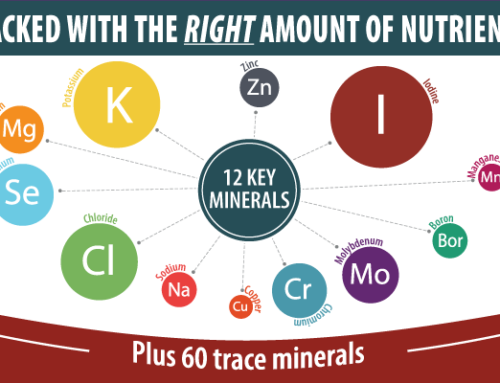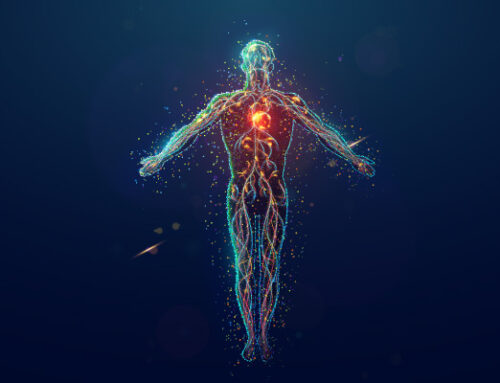Why does studying make you want a snack? What nutrients are essential for memory, and what should you know about supplements for brain function? This article walks you through the ways that micronutrients, specifically minerals, vitamins, and micronutrients, are involved in cognitive processes, like the ability to think, learn, remember, and solve problems. Ensuring a good, daily intake of essential minerals, vitamins, and nutrients is not only critical for maintaining good health, it’s also necessary for normal cognition.
An article published by The Linus Pauling Institute, Victoria Drake, Ph.D. outlines the way that the brain needs micronutrients. This piece cites her work.
Thinking Makes you Hungry
Have you ever noticed that when your children are studying for a test or you are concentrating on a project that you feel famished? The reason is that when the brain is working hard, it needs energy, i.e., glucose to perform its critical functions. That’s why a healthy after-school snack can provide extra “brainpower.”
Drake states that brain tissue is “ a highly metabolically active tissue that needs a constant supply of glucose (sugar) to meet energy needs.”[1] Glucose metabolism involves several minerals such as magnesium, iron, manganese plus the vitamins thiamin, riboflavin, niacin, and pantothenic acid that complete the metabolism of glucose so that the brain has enough energy to perform its crucial functions.
Another important factor involved in cognition is an adequate blood supply. Proper blood supply is constantly delivering oxygen, glucose, and macronutrients—all the elements the brain requires to do its job.
Related article: A Fascinating Look at Vitality and Health
The Brain needs Blood
Good nutrition—ensuring a balance of micronutrients—can help maintain blood supply to the brain, states Drake, which, in turn, may lower the risk of stroke. Drake goes on to say that, “Stroke is a pathological condition that results from impaired blood supply to the brain.”[1] In this capacity, micronutrients, including B-vitamins, are needed to synthesize various neurotransmitters in the brain. Vitamin C is needed for the synthesis of the neurotransmitter norepinephrine. Zinc is required for the functioning of the neurotransmitters norepinephrine, aspartate, and gamma-aminobutyric acid or GABA.
Nutrients that Protect the Brain
A third way that nutrients influence cognition is through protecting the integrity of the myelin sheath over nerves. The myelin sheath, made up of lipids and proteins, surrounds and insulates nerve fibers and allows nerves to act as conduits in the body’s electrical system, meaning it allows for rapid neurotransmission.[1] B-vitamins including folate and B-12 thiamin help maintain the membrane potential and proper conductance of the nerves.
Minerals for Brain Function
A deficiency of micronutrients can have far-ranging and long-lasting impacts on cognitive function. Below is a brief list of certain micronutrients, specifically minerals and trace elements, the role they perform in the body, and the effects of inadequate or poor status on cognition. These supplements for brain function are key for healthy mental processes.
- Calcium: Calcium ions regulate a number of physiological processes including neuronal gene expression and the neuronal secretion of neurotransmitters.1 Calcium is found mostly in the bone in the body and a small amount circulates in the bloodstream. Interestingly, whenever these levels of calcium fall too low, the body will pull or leach calcium from the bones in order to maintain blood levels. So, while a calcium deficiency may not affect cognition, it can adversely affect health later in life. A lifetime of poor calcium intake can increase one’s risk of osteoporosis.
- Iodine: Iodine is needed for the synthesis of thyroid hormones, which, in turn, are needed for the myelination of the central nervous system. Iodine is necessary for the normal development of the brain. A deficiency of this mineral during critical periods of development in gestation can result in mental retardation and lesser neurodevelopmental deficits.
- Iron: Iron is an element contained in hundreds of proteins and enzymes involved in multiple aspects of cellular metabolism. Iron is needed for the proper development of oligodendrocytes (the brain cells that produce myelin) and numerous enzymes that synthesize neurotransmitters. Iron deficiency during pregnancy and childhood is consistently one of the top global health problems. An iron deficiency during pregnancy can have serious consequences for both mother and infant including permanent learning and memory deficits.
- Magnesium: Magnesium participates in more than 300 metabolic reactions, many of which are needed for normal brain function. Overt magnesium deficiency has been induced experimentally and results in tremors, muscle spasms, muscle cramps (charley horses), and tetany (involuntary muscle contractions). Magnesium is also important for healthy sleep.
- Selenium: Selenium, a trace mineral, is needed for glutathione peroxidases which are important antioxidant enzymes in the brain and other tissues. In studies, a selenium deficiency in the brains of lab animals may be linked with a reduced antioxidant capacity in the brain.
- Zinc: Zinc is found in high levels in the brain where it helps regulate cellular metabolism.[1] In the brain, zinc is bound to proteins but free zinc performs a role in neurotransmission. Even short-term deficits of zinc have been shown to impair mental function while long-term deficits of zinc, especially during pregnancy, result in malformation or deficits in attention, learning, memory, and neuropsychological behavior.
Related article: Electrolytes are Essential for Life, Health, and Peak Performance
Vitamins and Herbal Supplements for Brain Function
- The Omega-3 fatty acid called docosahexaenoic acid (DHA) as found in fish oils: The lining of brain cells is highly concentrated with fatty acids and DHA. It is believed to be important in infant brain development and is believed to aid learning.
- B vitamins: Three B vitamins are often linked with brain health: B6, B9 (folate), and B12. They can help break down homocysteine, high levels of which have been associated with a greater risk of dementia and Alzheimer’s disease. B vitamins also help produce the energy needed to develop new brain cells.
- Vitamin E: Vitamin E is an antioxidant and is believed to help with brain health by reducing oxidative stress.
- Ginkgo biloba: The leaves are used to improve blood flow to the brain and as an antioxidant. Clinical results have been mixed, with some showing that it can help with memory problems or slow the progression of dementia systems, but other studies have been inconclusive. Most of the clinical trials have used a standardized extract of ginkgo, standardized to 24% flavone glycosides and 6% terpene lactones. A common dose in people with dementia is 40 milligrams of that extract three times daily. For improving cognitive function in healthy people, studies have used between 120 milligrams to 600 milligrams of the extract daily. (Source: WebMd.com)
- Acetyl-L-carnitine: This is becoming a popular supplement for brain function and is believed to help maintain brain cells.
What about caffeine?
Caffeine is not a nutritional supplement or a micronutrient, but it is a brain stimulant that also blocks receptors for a chemical called adenosine, which normally prevents the release of excitatory brain chemicals. This makes brain-stimulating chemicals flow more freely—giving you a surge of energy and potentially improving mental performance and slowing age-related mental decline. The benefits are not without some downsides, but it is worth noting both the benefits and risks when considering supplements for brain function.
References:
This article refers to a piece published by The Linus Pauling Institute and authored by Victoria Drake, Ph.D. titled “Micronutrients and Cognitive Function.” That article focuses specifically on cognitive function, or in lay terms, thought and mental processes. Citation: Citation: Drake, V. (2011, Spring). Micronutrients and Cognitive Function. The Linus Pauling Institute Research Newsletter, 12-15.
To read another scholarly abstract on the NIH website co-authored by Jeffery David Prescott, PharmD, RPh,1 Victoria Jayne Drake, PhD,2 and Jan Frederik Stevens, PharmD, PhD2, click here.








